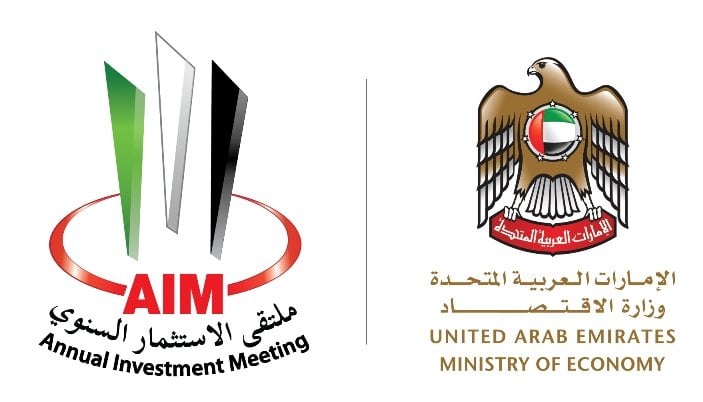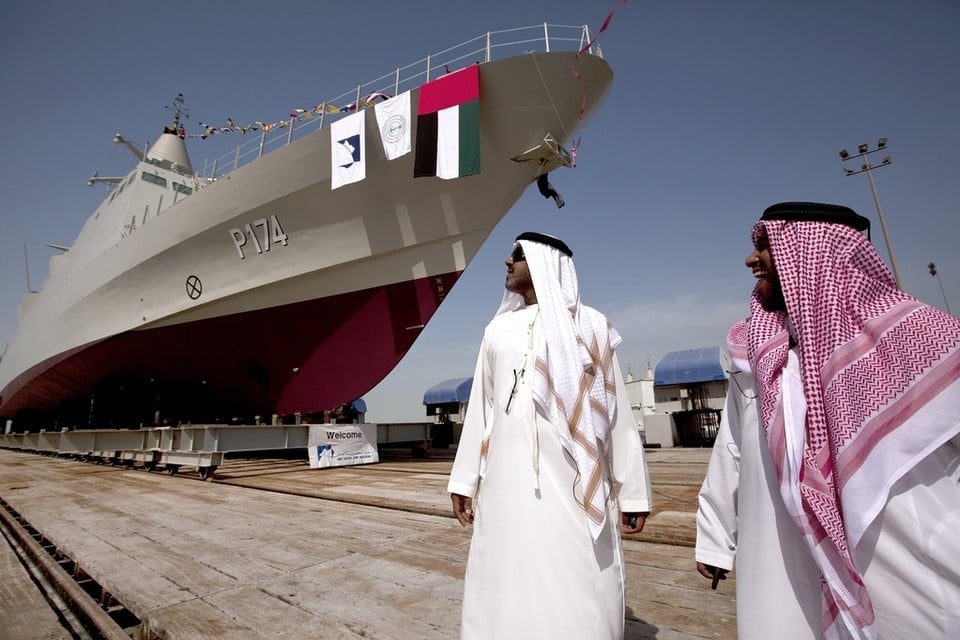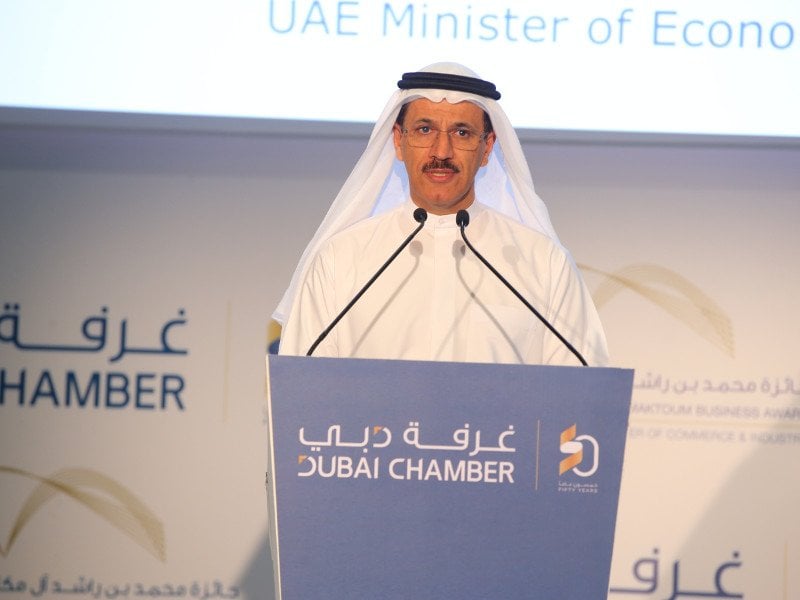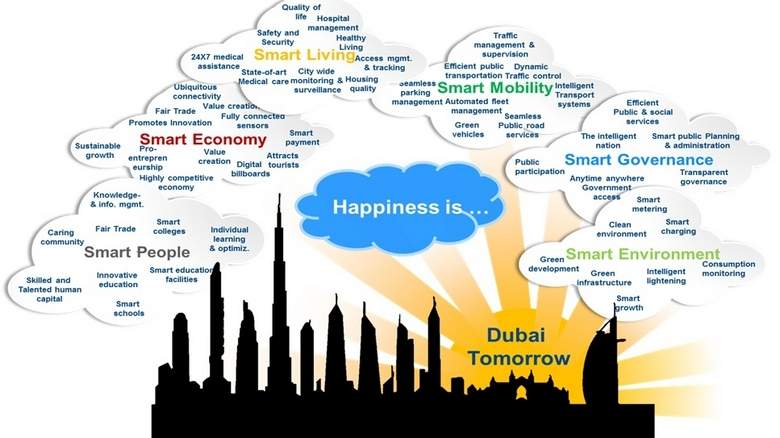Mehmood Ul Hassan Khan
UAE celebrates its 44rd National Day on December 2, 2014. It is another year of rapid socio-economic prosperity. It is another twelve months of further strengthening of “non-oil” sector in the national economy of the UAE. It is another 52 weeks of receiving highest inflows of foreign direct investments, tourists, and re-exports. It is another 365 days for further diversification of economy, production, investments, resources and the last but not the least, talents. Last but not the least, it is another 8760 hours of social development, development projects, innovation, world top rankings is associated fields of macro-economy and production, world class infrastructure and humanitarian assistance throughout the 2015.
Its economy is based on strong foundation due to which regional emerging geo-political chaos and geo-strategic security issues could not derail its ongoing roller-coaster on the path sustained development throughout the year 2015.
United Arab Emirates (UAE) stands for all the possible things, goals, standards, and targets to be achieved in the days to come. It is the land of opportunity for expatriates and icon of happiness and qualitative life to Arab youth. It is also land of peace, harmony and tolerance. For UAE, sky is the limit.
Diversification of Economy/Production

Its macro-economy is knowledge-based which is now paying its dividends. The journey of sand to space agency (mission of Mars) has been completed within a shortest span of time. It is the most advanced country in terms of technological advancement in the Gulf Cooperation Council (GCC) and Middle East and North Africa (MENA).
UAE has already achieved great strides in diversification of economy through massive industrialization, renewables, re-exports, Islamic economy and rapid growth of private sector. It is now an ideal hub of Foreign Direct Investments (FDIs), businesses and Joint Ventures (JVs). Many regional and international research reports (IMF, WB, World Economic Forum, Moody etc.) and economic data verify the elements of stability and sustainability in its macro-economy despite emerging socio-economic meltdowns and geo-political risks in the region and around the globe. It is heaven for “doing business “in the world.
World Bank report 2016 (Ease of Doing Business)
UAE has been ranked first in Arab world for 3rd year in row in Ease of Doing Business: World Bank report 2016. The UAE came among the first five countries in the world regarding non-payment of taxes, which does not affect business, process of construction permits and electricity delivery.
The UAE was ranked first regionally in both dealing with the construction permits, the delivery of electricity, the protection of small investors and registering property and the non-payment of taxes, which does not affect business, processing construction permits and the enforcement of contracts. 
Wise Leadership’s Strategic Vision
The UAE’s leadership attaches great importance to the energy sector through diversifying its resources. The country is on the right path to make the country one of the world’s best in the areas of energy policies, the best possible means for investment of energy resources, and focus on innovation in this sector. Moreover, according to Vision 2021, UAE aims to reduce its dependence on imported natural gas from 100 per cent today to 70 per cent by 2020-2021. It plans to invest Dh128bn to diversify energy sources.
Furthermore, according to UAE’s official figures the UAE has 5.8 per cent of the world’s oil reserves with hydrocarbon revenues accounting for 25 per cent of the country’s GDP and 20 per cent of total export revenues.
Marco-Economy (2014-15)
Despite, regional economic recession and global weak economic outcome, the UAE’s macro-economy is strong, stable and sustained. The UAE economy is expected to continue to grow steadily despite the decline in oil profits. According to UAE Economic Ministry (2015), “the UAE GDP increased more than 236-fold from Dh6.5 billion in 1971 to Dh 1,540 billion in 2014.” It recorded new overall economic growth levels in 2014-15 registering noticeable improvement in the non-oil sectors performance and showing a real growth of the GDP at 5.8 percent.
GDP
According to the UAE’s Economic Ministry (August, 2015), the GDP of the country is predicted to grow more than 3.5 percent to more than AED1.6 trillion during the current fiscal year compared with AED1.5 trillion in 2014. World Bank said earlier in its Mena Economic Indicator report (2015) that the UAE’s real GDP growth is forecast to slow from 4.7 per cent in 2014 to 3.1 per cent this year due to a decline in oil prices.
International Monetary Fund (2015)
The IMF said the UAE’s GDP grew 3.6 per cent while non-oil GDP registered a growth of 5.2 per cent in 2014-15. In terms of the UAE’s nominal GDP, IMF It’s expected to increase to $392.1 billion (Dh1.439 trillion) next year.
Frost & Sullivan (2015)
Moreover, according to global consulting firm Frost & Sullivan (April, 2015), the size of the UAE economy based on its GDP is estimated to grow from $416.44bn (Dh1.528 trillion) last year to $440.18bn (Dh1.615 trillion) this year, because of its economic diversification, increased public sector spending and huge foreign reserves.
Gross National Expenditure Allocation
The Gross National Expenditure allocation in the annual budget increased from only Dh201 million in 1971 to Dh49bn and Dh100bn in 2015 which clearly shows its great achievement in the spheres of socio-economic development.
UAE’s Economic Ministry (2015)
According to UAE’s Economic Ministry, national production has increased from Dh1.3 trillion in 2006 to Dh2.5 trillion in 2014. Production reached some Dh450bn in the manufacturing industries in 2014, up from Dh230 billion in 2006, and production in the construction sector reached Dh295bn in 2014, up from Dh155bn in 2006.
Manpower Statistics (2015)
The total manpower in the national labour market in 2014 reached 275,000 citizens, and UAE is aiming to take that number to 460,000 citizens by 2021. It shows UAE’s high commitments towards the rights of labours which enables unlimited workers to work throughout the UAE without any fear and under the umbrella of uniformed codes of labour rights.
UAE: Ideal Destination for Global Talent
The UAE in 2014-15 continued to attract great talent, leading the world as a preferred destination for talent and skills according to reports, with total compensation paid to employees in 2014-15 reaching Dh410 billion in all sectors, including Dh82 billion in the government sector.
UAE’s Economic Efficiency
UAE’s ability to maintain high grow rates in the past years despite global economic volatility shows its economic efficiency and proves that its diversification policy is successful as it relies more on non-oil sectors to weather global challenges. The share of the industrial sector in the GDP is growing and now stands between 10-14 percent. It is predicted that the size of industrial investments in the UAE would double in the next five years in tandem with the growth of the industrial sector share in the country’s GDP, which now stands between 10-14 per cent.
Rigorous Commercial Diplomacy
UAE has firm belief in commercial diplomacy due to which it has now more than 75 bilateral tax agreements and some 50 bilateral investment treaties with strategic partners around the world, as well as air transport agreements with 168 countries on different continents of the world, as well as being signatory to hundreds of other bilateral and multilateral agreements. It continues to lead the Middle Eastern countries as the region’s largest trading partner with the world’s top 10 global economies.
UAE has become a major player in international trade. It bolstered its position in global trade scene. The liberal trade policy of the UAE, advanced infrastructure, strategic location and legislative environment are all factors contributing to the continuous growth at external fronts.
Comparative Advantage of UAE’s Strategic Location
The UAE in 2015 also continued to capitalise on its strategic location and strong infrastructure in enhancing its import and export systems, as its exports inclusive of re-exports reached Dh376 billion, while its imports reached some Dh700 billion.
Massive Infrastructural Development
The infrastructure of its ports and airports, as well as of its shipping fleet, now facilitates trading links throughout the world. The UAE has now become an important player in the global economy and provides the regional headquarters for more than 25 per cent of the world’s largest 500 corporations.
Total foreign direct investment in the UAE was 105 billion dollars in 2013 of which a significant share went into knowledge-intensive manufacturing and services industries. It is predicted that improved knowledge creation and investor protection can facilitate the UAE’s evolution into a knowledge based economy.
Strategic Vision 2021
Moreover, Vision 2021 National Agenda also intends to develop a knowledge-based economy, built on innovation. There is great scope for development in the fields of manufacturing, information automation, tourism and transportation.
Year of Innovation (2015)
To speed-up the traditions of knowledge-based economy, the UAE government has designated 2015 the Year of Innovation, focusing on areas such as renewable energy, transportation and technology.
Dubai’s Smart City initiative (2014-15)
It was launched in 2014. Smart City projects include the installation of sensors throughout the city to better manage traffic flows, the development of a “smart electrical grid” that allows residents to sell surplus solar power to the Dubai Electricity and Water Authority, and the installation of “smart meters” to foster more efficient use of electricity and water.
Knowledge-Based Economy
Now, UAE is famous for its knowledge-based economy which has the best model in the world. It is a paradigm shift which has transformed its macro-economy to mitigate all the pitfalls of regional and world weak economic conditions for so many years.


